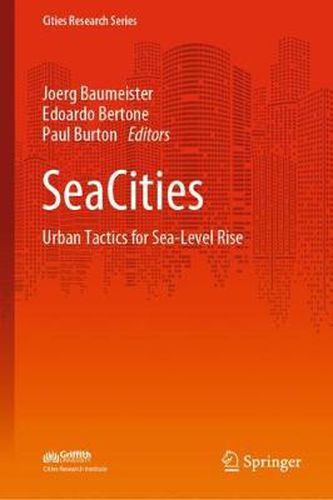Readings Newsletter
Become a Readings Member to make your shopping experience even easier.
Sign in or sign up for free!
You’re not far away from qualifying for FREE standard shipping within Australia
You’ve qualified for FREE standard shipping within Australia
The cart is loading…






This title is printed to order. This book may have been self-published. If so, we cannot guarantee the quality of the content. In the main most books will have gone through the editing process however some may not. We therefore suggest that you be aware of this before ordering this book. If in doubt check either the author or publisher’s details as we are unable to accept any returns unless they are faulty. Please contact us if you have any questions.
This book presents and discusses a strategy which includes four approaches to dealing with the risk of sea-level rise and other water hazards. It also offers opportunities for cities to explore urban extensions such as marine estates, aquatic food production systems, new sea related industries, maritime transport developments, new oceanic tourist attractions, and the designation of additional coastal ecological zones. The urban interface between Sea and Cities generates, therefore, both burning issues and valuable opportunities and raises the question of whether it is possible to solve the former by exploiting the latter?
$9.00 standard shipping within Australia
FREE standard shipping within Australia for orders over $100.00
Express & International shipping calculated at checkout
This title is printed to order. This book may have been self-published. If so, we cannot guarantee the quality of the content. In the main most books will have gone through the editing process however some may not. We therefore suggest that you be aware of this before ordering this book. If in doubt check either the author or publisher’s details as we are unable to accept any returns unless they are faulty. Please contact us if you have any questions.
This book presents and discusses a strategy which includes four approaches to dealing with the risk of sea-level rise and other water hazards. It also offers opportunities for cities to explore urban extensions such as marine estates, aquatic food production systems, new sea related industries, maritime transport developments, new oceanic tourist attractions, and the designation of additional coastal ecological zones. The urban interface between Sea and Cities generates, therefore, both burning issues and valuable opportunities and raises the question of whether it is possible to solve the former by exploiting the latter?